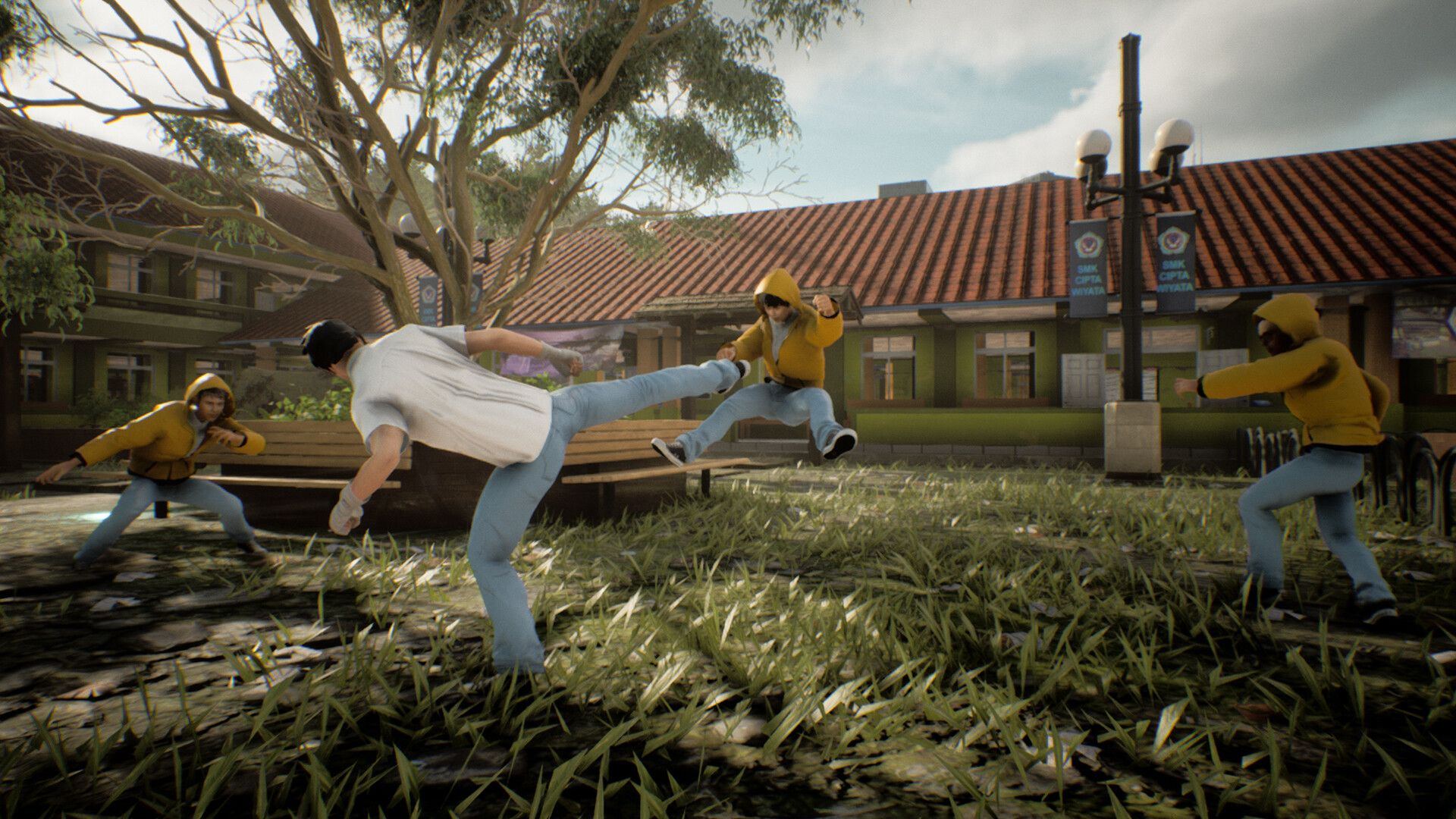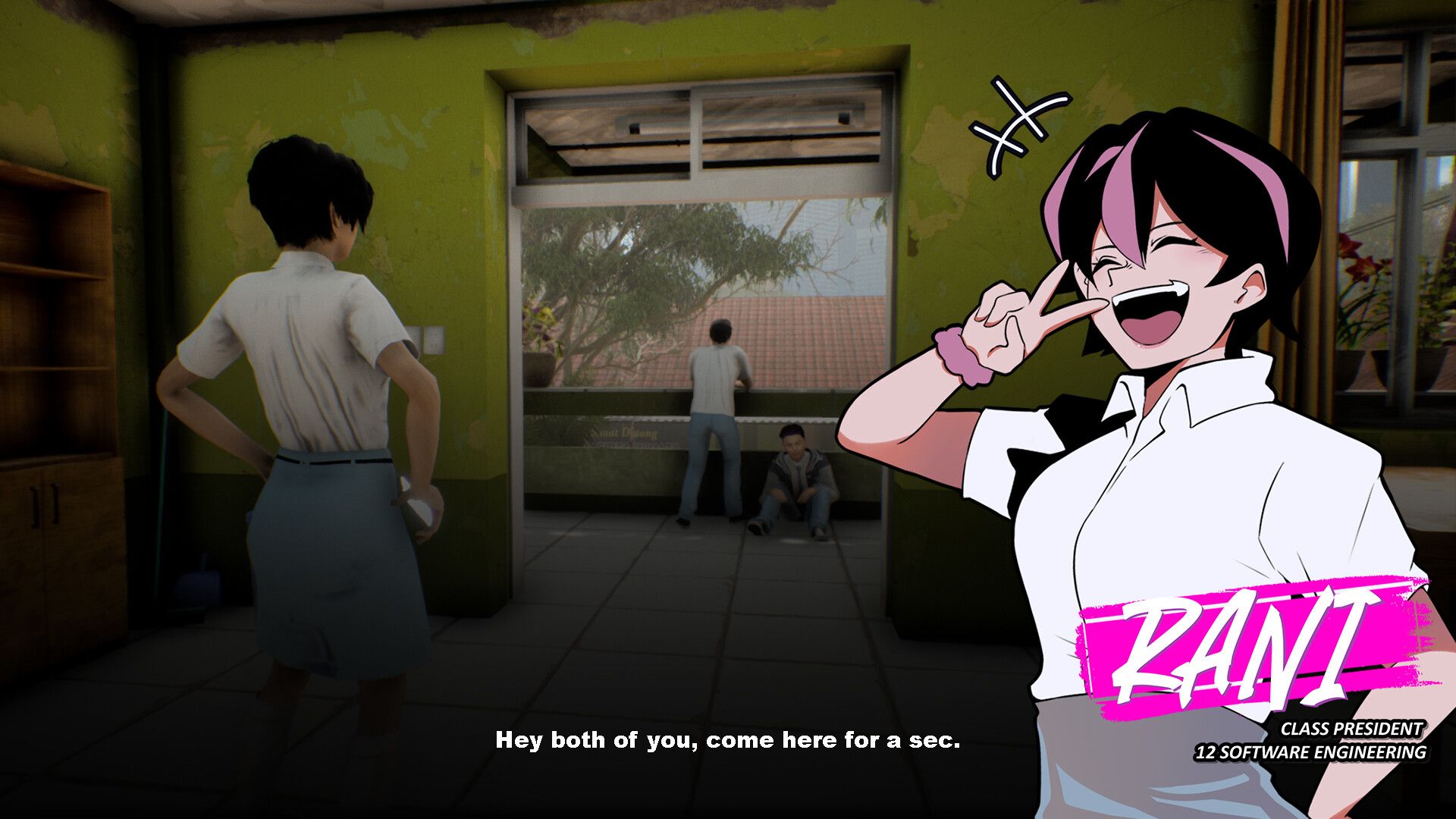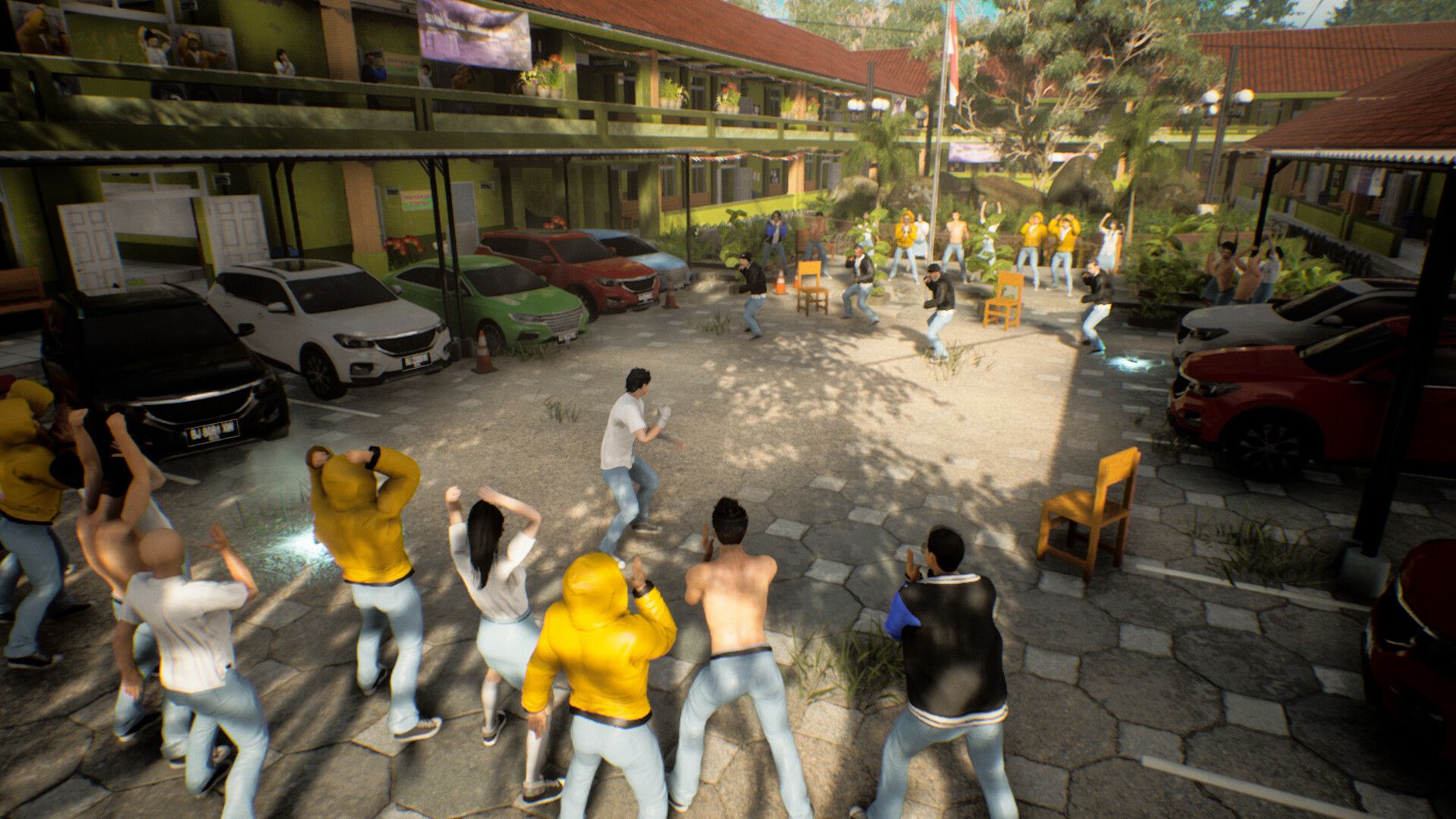Troublemaker and the High School Power Fantasy
Take out your teen angst with this fun indie beat 'em up

Most action games are a power fantasy of some kind – a world where you are front and centre, a one-person army capable of solving every problem by punching it in the face or blowing its brains out. We all know this, right? I hope this isn’t news to you.
Many games have you punching your way through a world-threatening antagonist. Sometimes they are literal gods. I mean, there are games like God of War, which are about how you can’t punch your problems away, but you try your best to do so regardless.
On the other end of the fantastical scale, there’s a game I’ve recently been playing, a beat ‘em up called Troublemaker, from Indonesian devs Gamecom Team. Troublemaker asks the question: what if you could punch your way to a good high school experience? Now that’s a power fantasy.

The Setup
The set-up for Troublemaker is nothing out of the ordinary – your character, Budi, is a transfer student to a high school in Indonesia. He and his mum are moving for a fresh start after Budi keeps getting into fights. He’s winning those fights because it’s apparent early on that he’s a great brawler, but he doesn’t want any more trouble.
Of course, trouble follows him at his new school. In a very anime twist (for a very anime-inspired game), there are various tournaments at the school that will guarantee the winning classes the funding to ensure they leave school with great job prospects in a difficult market. The most relevant of these is the Raise Your Gang tournament, in which each class puts forward a champion to fight on behalf of their class. Despite initially rejecting the tournament, Budi can’t stop getting picked on for fights and promptly showing off his skills. So he begrudgingly agrees to help out his new classmates.
Between fighting the other classes’ champs and their flunkies, you’ll form friendships, find a girlfriend, deal with classroom politics, and sleep through class.

Power and High School Bluster
The characters and dialogue are cringeworthy, but in that way teenagers are cringeworthy. The boys are all bluster, potty mouths, and toxic masculinity. It’s far from the greatest writing you will see, but it rings somewhat true. I often wanted to skip cutscenes, but in the same way, if I was waiting at a bus stop with a bunch of rowdy high school kids, I’d wish I could skip to my destination. Budi, for someone who apparently doesn’t like to fight, doesn’t take much goading to throw hands. Of course, it wouldn’t be much of a beat ‘em up if the protagonist took the high road all the time. Basically, it’s hormones: the video game.
Where the power fantasy comes in is that amongst this string of fights, Budi’s school life is improving, with little mention of how this teenage King of the Iron Fist tournament is affecting his home life. Budi is punching his way to a better adolescence.
I’m not going to begrudge anyone who reads that and decides that they, in fact, would very much want to play out that fantasy. To this, I would say go ahead, but keep in mind that the combat is no Arkham Asylum. Still, it's decent nevertheless. It’s not hard to see the appeal of smashing your way through a rogue’s gallery of high school bullies.

Conclusion
In Troublemaker, the experiences of the young Indonesians are reflected in a way that shows you can change the country and the generation, but the high school social experience seems to remain intact, for better or worse. Anyone who left high school with a chip on their shoulder could potentially be the audience for this game, and that includes me. But I don’t feel that desire to relive high school, not even in a way that could see me make friends for life by hitting a jerk with a chair. I think that whether you will enjoy Troublemaker largely hinges on the want to play out that particular scenario.
Perhaps I’m overanalysing what is essentially a janky but wholehearted beat ‘em up full of teen melodrama from a young dev team, and that phrase may be more of a decider for you than any of the other stuff. Either way, the devs at Gamecom Team are young, and they have a bright future ahead of them, so I hope they have not burnt out on that post-school angst. No one wants to peak in high school, anyway.